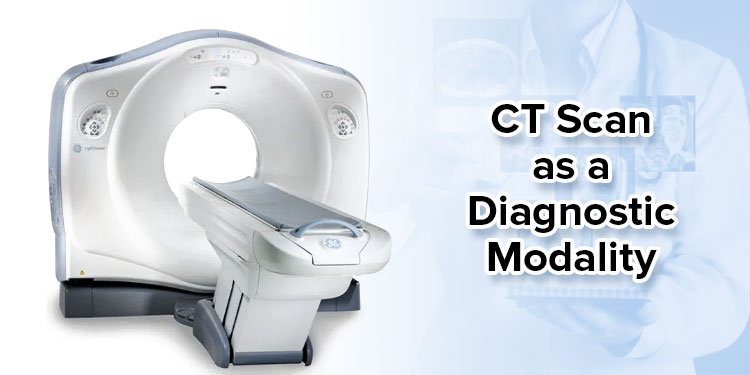A CT scan is a diagnostic tool that helps in the diagnosis of various structural abnormalities in your body. The CT scan stands for computerized tomography. Computerized tomography is based on the radiation principle in which the ionizing radiations are bombarded on your body and with the help of a computer, it is represented on the display of the computer. The CT scan helps in the visualisation of any abnormality or lesion present in any part of your body. CT scan is often used as a first-line diagnostic modality in case of an emergency.
The CT scan can help find out various diseases and conditions. You might also get recommended for getting the scan to
- Help in the diagnosis of problems associated with muscles and bones including tumors and fractures.
- Help localize the cancerous lesion or infection
- Help find out blood clots
- Guide certain biopsy procedures
- Guide cancer therapies like radiation therapy
- Evaluate internal injuries and internal bleeding
- Judge the effectivity and quality of ongoing treatments
- Diagnose conditions related to different organs including cancer, heart disease, masses in the liver or lungs, etc.
- Stones in the kidney or urinary system
- Injuries to the brain and spinal cord
- Disorders pertaining to the gastrointestinal system like appendicitis, diverticulitis, Crohn’s disease, etc.
Sometimes a CT scan can be done using a contrast medium. The contrast medium is administered into your body through a vein in your hand or arm. The contrast medium can be iodine-based or in recent practice, non-iodinated contrast mediums are used. Non-iodine-based contrast mediums such as gadolinium contrast mediums are less likely to cause allergic reactions than iodine-based contrast mediums.
How to Prepare for a CT Scan?
There are no special preparations that you need to do before the CT scan. Some general considerations would be given by your healthcare provider. Blood tests can be suggested before your CT scan to ensure the safety of the contrast medium. If you have diseases like diabetes, it is necessary for you to maintain your blood sugar levels at an optimum level. If you have had an allergic reaction due to previous contrast administration, it becomes necessary to inform your healthcare provider. Additionally, you should avoid consuming coffee, or other addictive products at least 24 hours before the test. Doing heavy exercise should also be avoided before the scan.
Risks Associated With CT Scan?
The general risks associated with the CT scan are related to
- The radiations that the scan operated on. As the working principle of the scan is ionizing radiations, the radiations themselves contain the potential to cause potential; damage to the DNA makeup of your organs and body tissues. The change in the DNA makeup can lead to certain genetic diseases or even cancer. However, the risk of developing radiation-related damages is very rare as the scans are conducted under safety related.
- Contrast medium that is used for contrast-based CT scans. The contrast can cause allergic reactions. The allergic reaction starts developing as itching, redness, and swelling which may progress to a severe allergic reaction known as anaphylactic shock if the initial signs of allergy are ignored, therefore it is necessary to inform your health-care provider as soon as you encounter the first signs of allergy.
